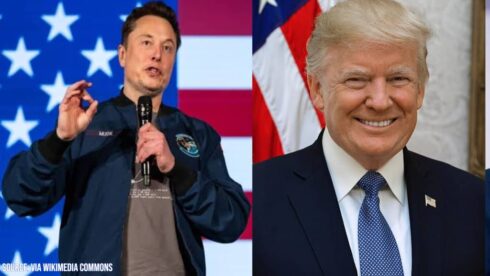Elon Musk’s business empire, which includes Tesla, SpaceX, and various other ventures, operates in sectors that are significantly shaped by government policies and regulations. These industries, such as aerospace and automotive manufacturing, are directly impacted by legislative actions, making political relationships crucial to business success. Grok, Elon Musk’s AI chatbot, pointed out that the deregulatory stance championed by former President Donald Trump aligned well with Musk’s vision of reducing bureaucratic hurdles that could stifle innovation. Elon Musk’s companies, especially Tesla and SpaceX, thrive in an environment that encourages technological advancements and reduces red tape, and Trump’s policies on deregulation likely provided a favorable climate for Musk’s businesses to grow.
Additionally, SpaceX’s dependence on U.S. government contracts—especially with key agencies like NASA and the Department of Defense—makes political influence a strategic asset for Elon Musk. During Trump’s administration, SpaceX benefited from fewer regulatory constraints and increased government partnerships. Trump’s government policies may have opened doors for lucrative opportunities and ensured that Elon Musk’s space exploration endeavors faced less bureaucratic scrutiny, allowing SpaceX to accelerate its mission to revolutionize space travel. These political advantages underscore why maintaining strong ties with a deregulation-friendly administration like Trump’s is seen as beneficial for Elon Musk’s long-term business goals.
Tax Policies and Financial Gains
Trump’s tax reforms, which included significant cuts for corporations and high earners, were another focal point in Grok’s response. These policies potentially benefited Musk by improving Tesla’s profitability and reducing the financial strain on his enterprises.
The AI further implied that Elon Musk’s business-minded pragmatism might drive his support for any administration that offers economic incentives aligned with his corporate goals. This pragmatic approach may be viewed as a calculated move to safeguard and expand his empire.
Political and Ideological Alignment
Grok noted Elon Musk’s gradual shift towards more libertarian and conservative ideologies. This evolution, particularly evident after his acquisition of Twitter (now X), reflects shared stances with Trump on issues like free speech, deregulation, and opposition to “woke culture.”
While Elon Musk’s endorsement of electric vehicles (EVs) contrasts with Trump’s historically mixed stance on clean energy, both figures share skepticism about government overreach. This ideological overlap could explain Elon Musk’s public alignment with Trump.
Strategic Public Positioning
The chatbot suggested that Musk’s support for Trump may also be a strategic effort to maintain visibility and influence within political circles. By aligning with a polarizing figure like Trump, Elon Musk garners attention and ensures his voice is heard in crucial policy discussions.
Tensions between Musk and the Biden administration, particularly over labor issues and Tesla’s non-unionized workforce, may also play a role. Grok’s response hinted that Elon Musk’s alignment with Trump could be, in part, a reaction to perceived opposition from the current administration.
Social Media and Public Perception
With his acquisition of X, Elon Musk has positioned himself as a defender of free speech. Grok pointed out that this platform has become a haven for conservative voices, mirroring Trump’s political style. This shift could serve as a strategic alignment to appeal to a broader, right-leaning audience.
However, critics argue that this approach has also amplified misinformation and polarized discourse. Elon Musk’s actions on X could be seen as both a business decision and a reflection of his personal views aligning with Trump-era conservatism.
Balancing Criticism and Legacy
While Musk’s alignment with Trump may benefit his businesses, it has not come without controversy. Grok acknowledged that critics often view Musk’s actions as opportunistic, prioritizing corporate gains over environmental and labor concerns.
Nonetheless, the chatbot suggested that Musk’s motives might stem from a genuine belief in innovation-friendly policies rather than pure self-interest. Grok emphasized that Musk’s decisions reflect a complex interplay of ideology, business strategy, and public influence. Grok’s detailed response offers a nuanced view of the relationship between Elon Musk and Donald Trump, blending business pragmatism with political strategy. While the AI’s insights are speculative, they shed light on Elon Musk’s multifaceted approach to navigating the intersection of innovation, policy, and public perception. This provocative interaction with Grok has sparked widespread debate, highlighting the power of AI to engage with complex and controversial topics.














